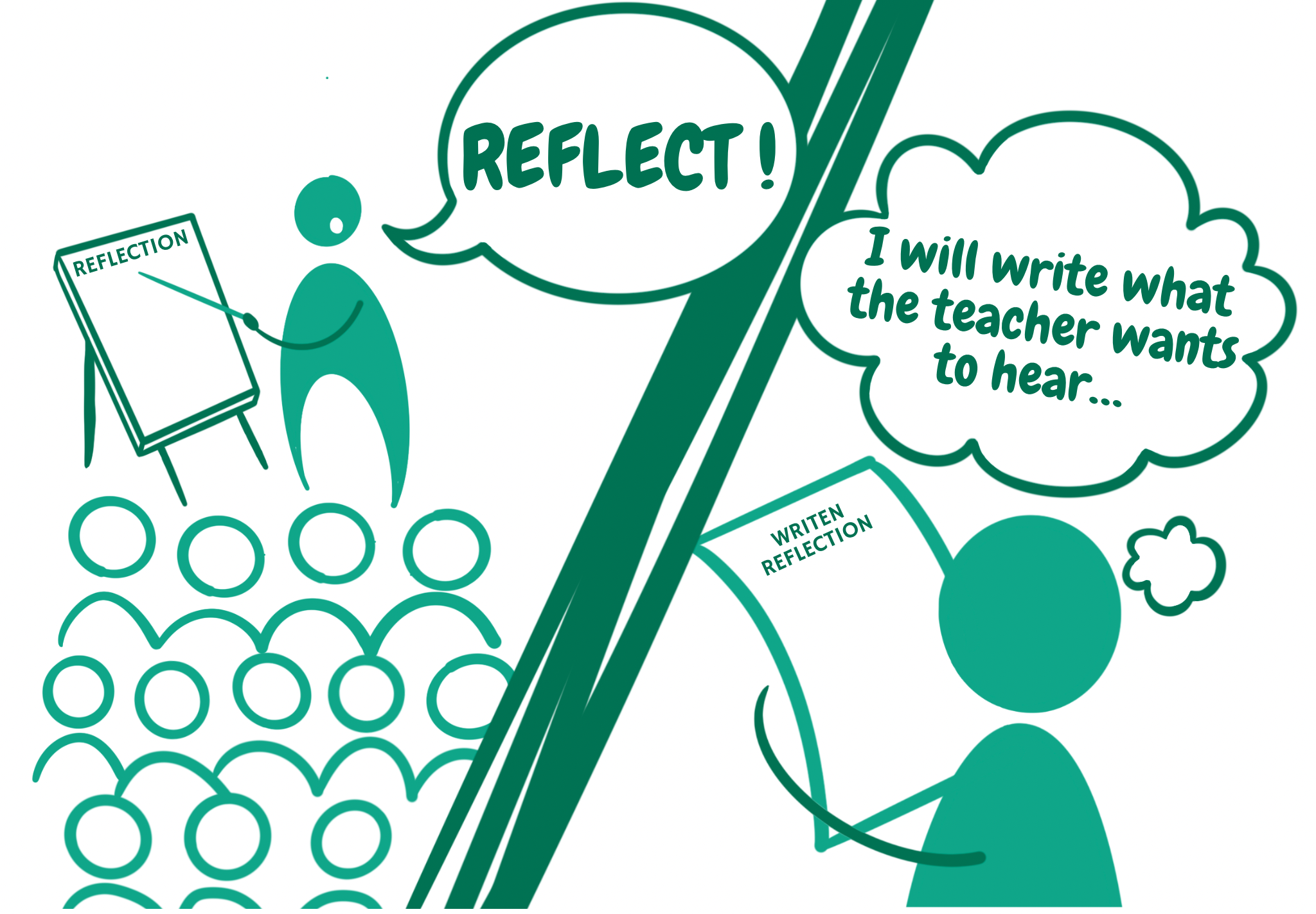What's reflection about?
The concept of reflection is multifaceted and has been extensively explored by numerous authors and practitioners. Reflection assumes various meanings depending on the context and the field of application it pertains to (1,2).
At its core, reflection is a process that entails the unraveling and interpretation of experiences. It involves understanding what happened, why it occurred, and what to do with that newfound knowledge.
As such, reflection is inherently linked to self-awareness, the enhancement of learning outcomes, personal and professional development, and understanding others (3). This process requires individuals to carefully assess and make sense of their behaviors, beliefs, and perspectives. Consequently, reflection can yield both valuable insights and uncomfortable realizations of one's weaknesses or mistakes (4).
In essence, reflection serves as a powerful tool for practitioners and researchers alike, fostering growth and deeper comprehension in various contexts. It also plays a pivotal role in developing transversal skills, such as resilience, effective communication or critical thinking (5). The call to embed reflection as a core skill in engineering education has been echoed across authors and institutions, being explicitly stated (6), or implicitly assumed (7). Therefore, embedding reflection in engineering curricula is essential and should receive structural attention (8, 9).
However, numerous hurdles must be overcome to integrate reflection into engineering curricula from educational, professional, and systemic perspectives. These challenges, which we elaborate on in our practice paper (9), include the abstract nature of reflection, its emotional and vulnerable aspects, unclear assessment criteria, existing workload pressures, lack of training, and time constraints, among others.
These obstacles often result in reflection becoming a mere tick-box exercise, which might lead students to provide trivial or socially desirable answers as well as reflection fatigue.

Our ultimate goal is to move beyond the superficial practices and foster deeper and meaningful reflection, what we refer to as Transformative Reflection (9,10)—reflection that causes or is able to cause change, whether that is on a small scale, such as suddenly something making sense; or on a larger scale, like initiating behavioral shifts.
By pursuing this quest, we aim to make a crucial contribution to educate Reflective Engineers who are socially responsible, ethically aware, and capable of delivering positive contributions to the complex challenges facing our global society today.
Read more on how we do that!
-
- Kember et al. (2008)
- Chan, Wong, and Luo (2021) ; Akbari (2007) ; Cotton (2001) ; Tsingos, Bosnic-Anticevich, and Smith (2014) ; LaBoskey (1994)
- Chan & Lee (2021)
- Chan, Wong, and Luo (2021) ; Mezirow (1998); Boud, Keogh, and Walker (1985); Grant, Franklin, and Langford (2002)
- Mello and Wattret (2021)
- Turns et al. (2014); Chan and Lee (2022)
- MIT, (2022)
- Hermsen et al. (2022)
- Hermsen et al. (2023)
- Definition based on transformative learning (Kitchenham 2008; Mezirow 2000) Minnes et al. (2018) and Scheele (2015)